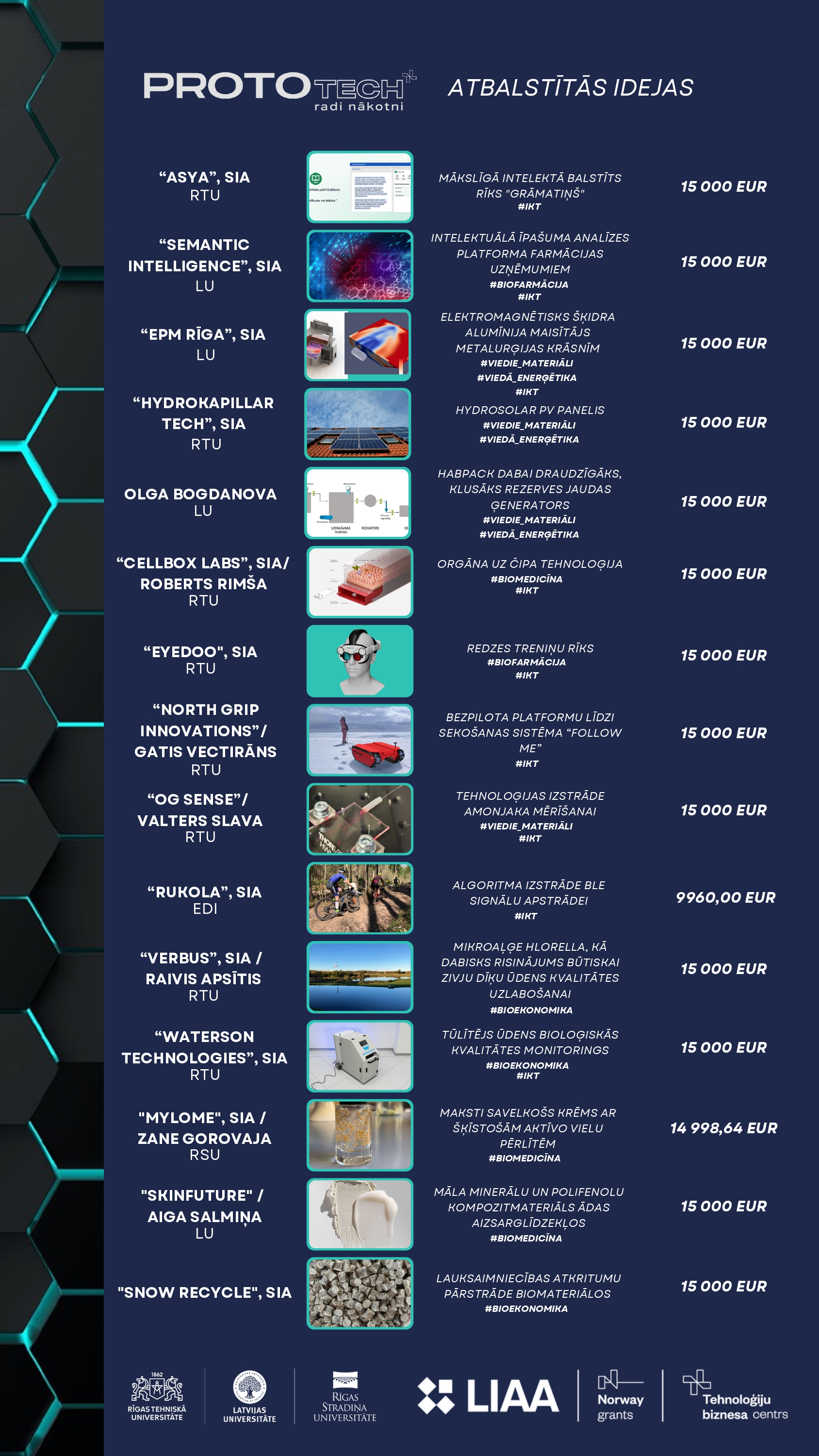To develop the use of the microalgae Chlorella vulgaris for water purification and oxygen enrichment, increasing the productivity of fisheries, a new microalgae cultivation facility has been developed at Riga Technical University (RTU) with the support of the Latvian Investment and Development Agency's «PROTOTECH» programme.
The use of the microalga Chlorella vulgaris for water purification and oxygenation is a novelty in the Baltic region, according to the «PROTOTECH» project application. The innovation makes it possible to grow fish in ponds at much higher densities and improve water quality. The project's client, Raivis Apsītis, has three years of experimental experience with microalgae himself, both using them in practical fish farming and cultivating his own microalgae in artificially created laboratory conditions at low volumes. Numerous experiments have been carried out under different conditions, varying light-dark regimes, light spectrum, light intensity, analysing the effect of temperature on growth, as well as different media. The «PROTOTECH» programme was challenged to prototype an efficient pilot-scale facility and to develop guidelines for a cultivation protocol (light intensity, spectrum, mixing type and intensity, feeding and harvesting frequency and volume) to provide a microalgae Chlorella vulgaris suspension of consistent quality and predictable volume.
«The biggest challenge was the light - how to get the light in the best possible contact with the algae,» says Kārlis Vītols, one of the project implementers and a graduate of the Institute of Heat, Gas and Water Technology at the Faculty of Civil and Mechanical Engineering, RTU. The client had the idea of a transparent glass or plastic box in which the algae could be illuminated from all sides by floodlights, but the contractors found that it was technologically difficult to build a glass box that would be durable. «We decided to go for stainless steel baths, which are easy to maintain and service. We designed the lights as cylinders that are placed in the water - for example, the large bath has six cylinders,» says K. Vītols, outlining the process. The challenge was also to figure out how to cool the cylinders so that the LED strips did not overheat. «We found powerful, efficient LED ribbons that are wound in a spiral on a metal core, and this metal core is cooled by fans. We also carried out trials to check the temperatures of the tubes before putting them into production,» says the specialist. He worked more on sourcing and selecting the components, while his colleague Krišs Bērzkalns worked on developing and detailing the 3D model.
The two experts also designed the frames to hold the steel baths, which were then made to the exact dimensions. This is not the first biotechnology project for the two developers; they have had an interest in biotechnology before, resulting in a joint start-up that developed an air-purifying plant wall. Another innovative product to which K. Vītols has put his hand is a scent-recording device developed at the RTU Science and Innovation Centre's Design Factory.
«PROTOTECH» is a prototyping programme created by the Technology Business Centre of the Investment and Development Agency of Latvia, which provides support to natural and legal persons in the design and development of prototypes of science-intensive technology products or services in cooperation with leading Latvian universities - RTU, the University of Latvia and Riga Stradiņš University. The project is implemented under the Norwegian Financial Mechanism 2014-2021 Programme «Entrepreneurship Development, Innovation and Small and Medium-sized Enterprises». A grant of EUR 15 000 has been received for the development of this prototype.
Working together for a competitive Europe!

